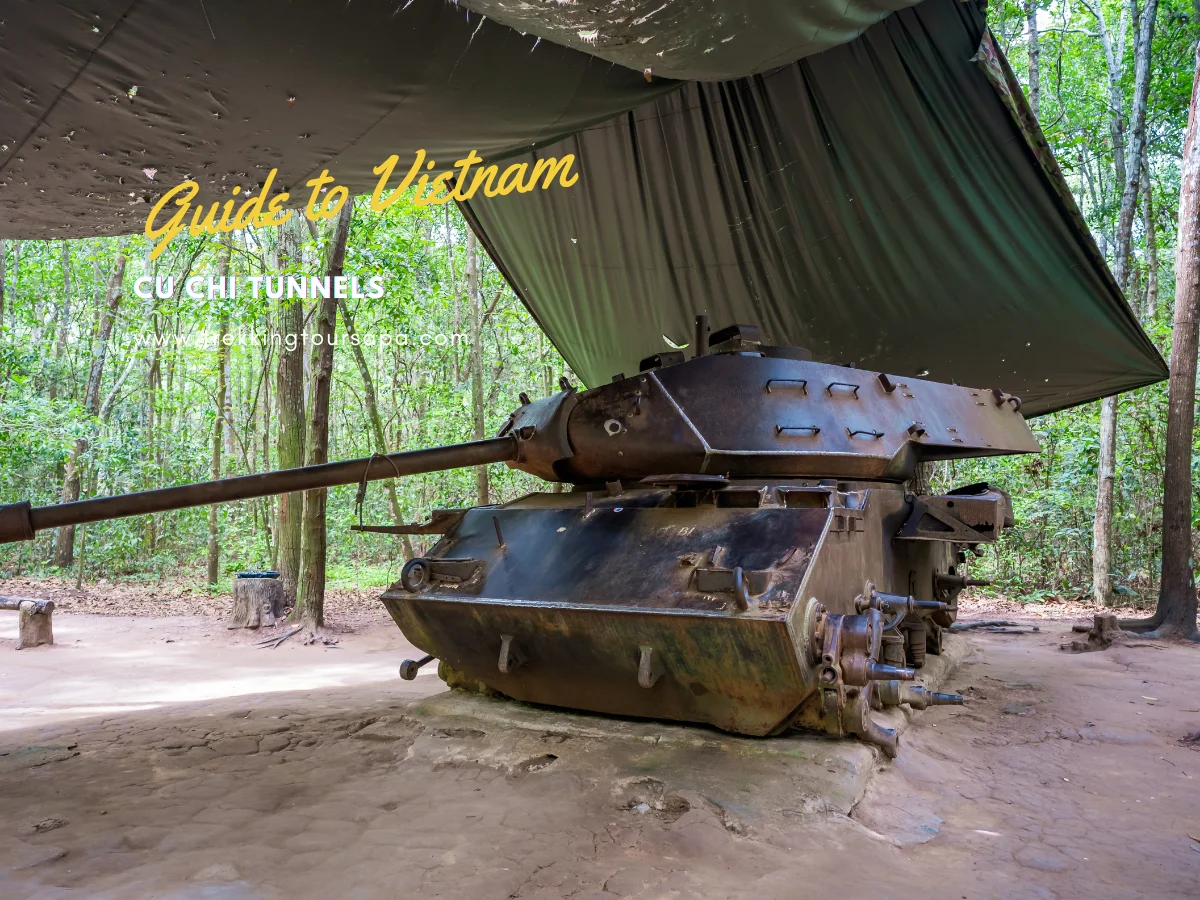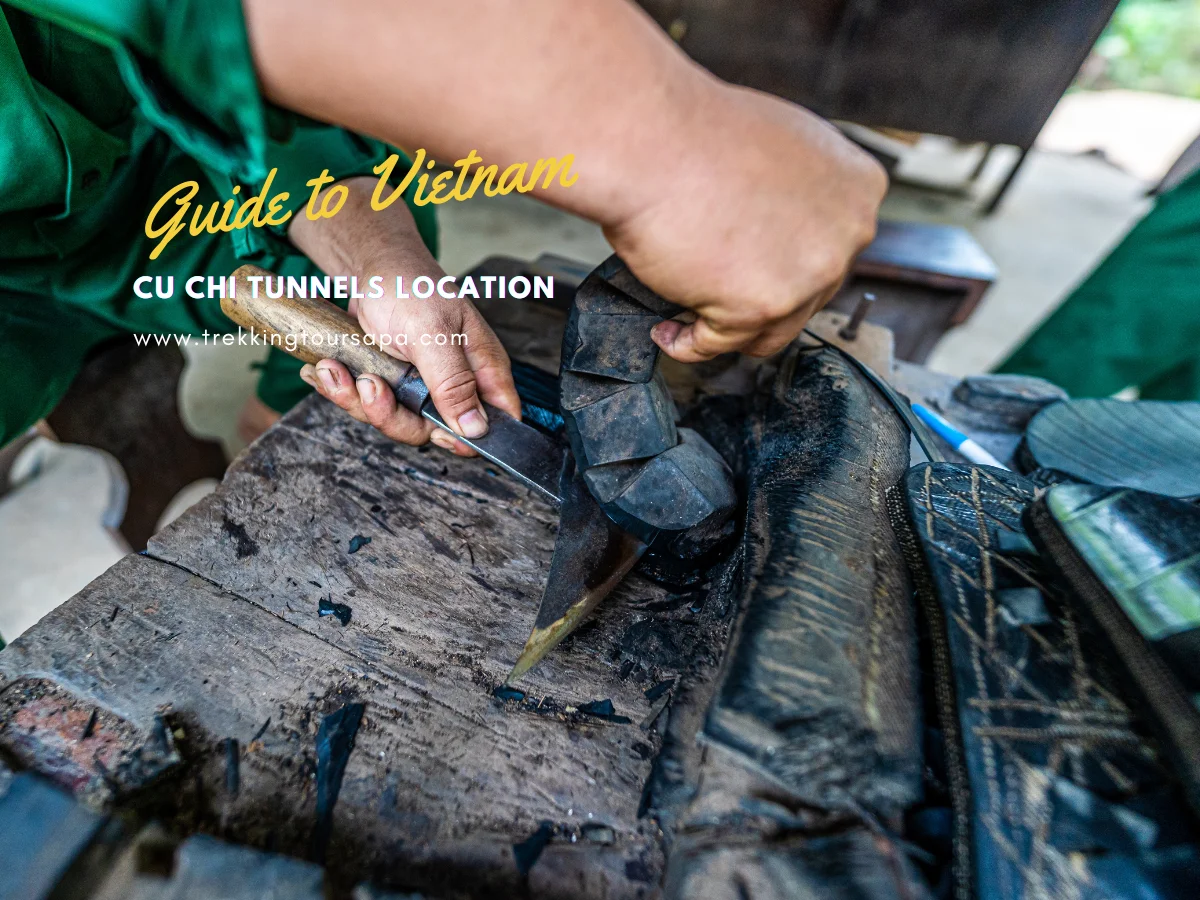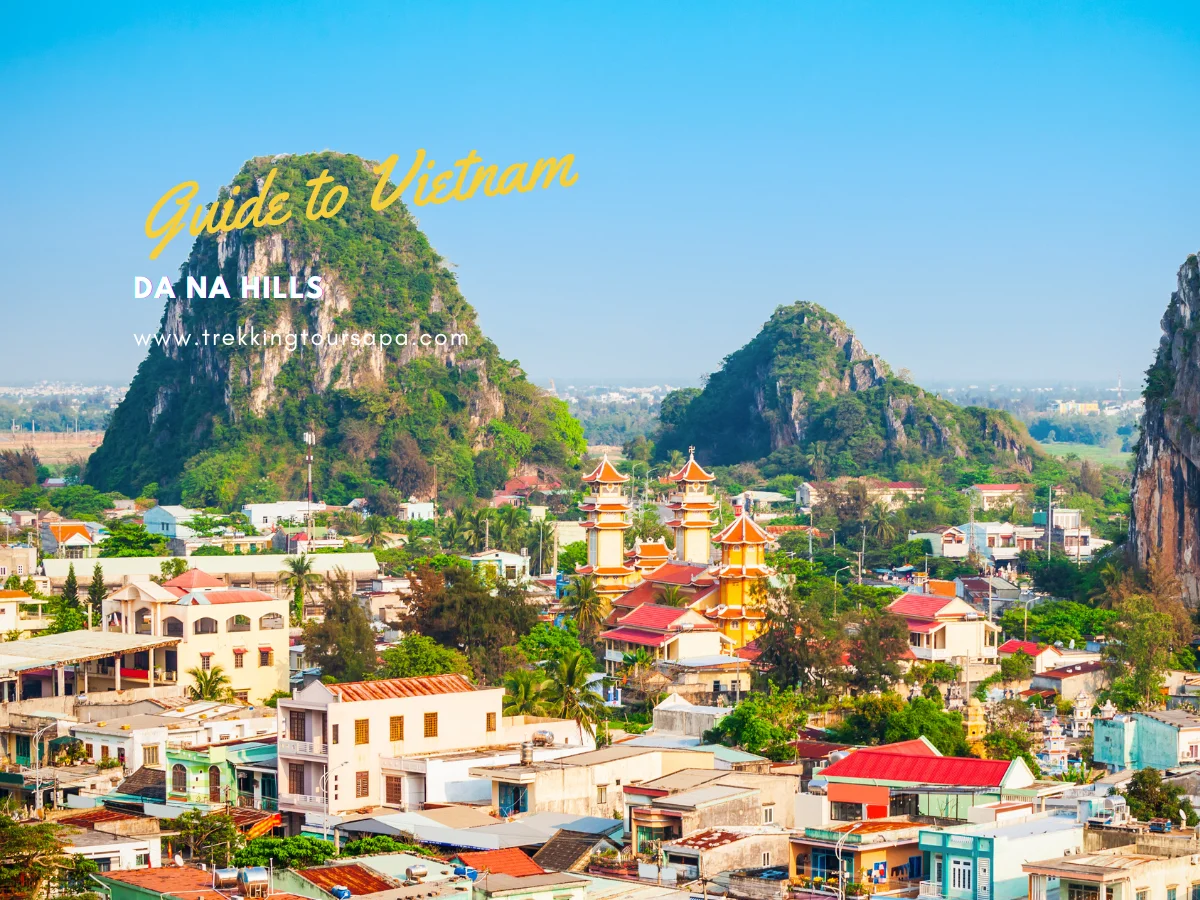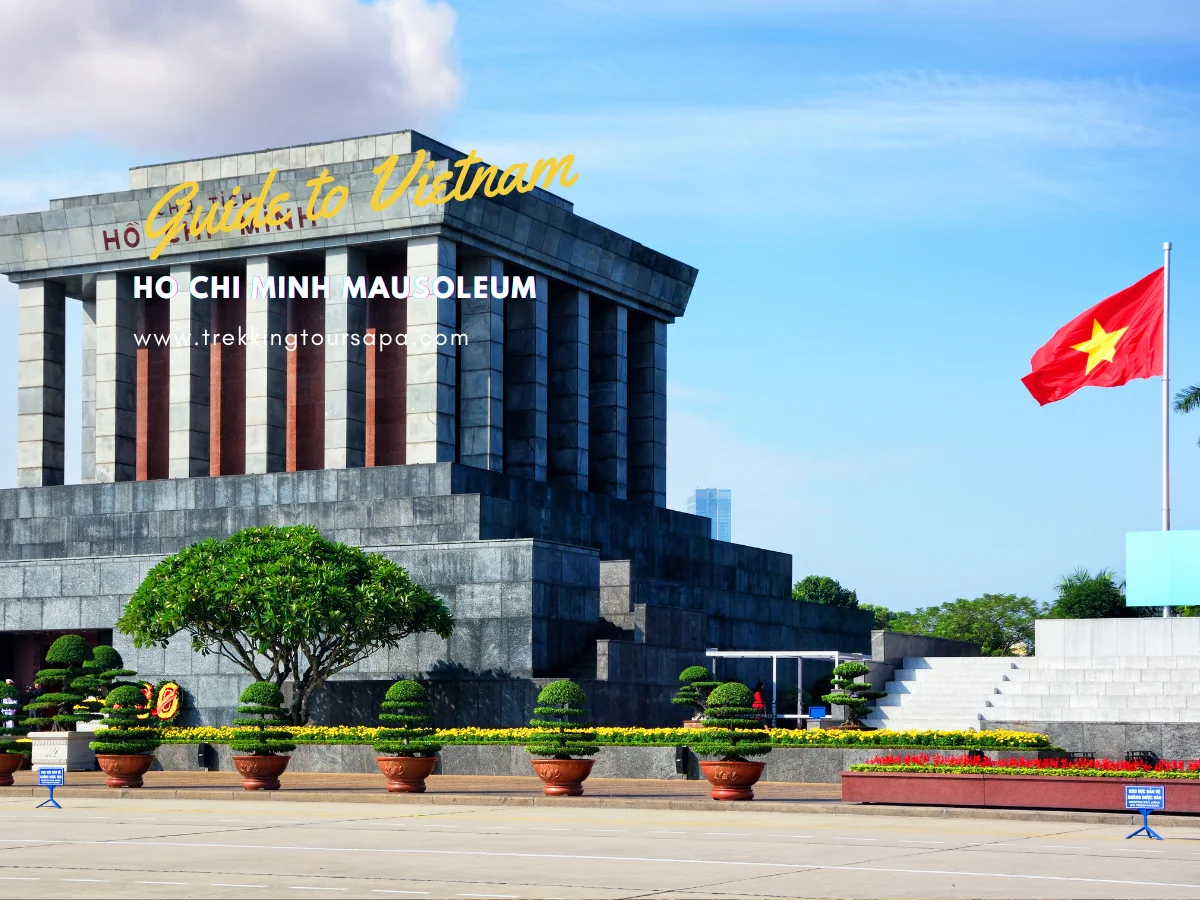Welcome to our Sapa travel guide. We’ll explore the beautiful region of Sapa in Vietnam’s northern mountains. It’s about 300 kilometers from Hanoi. This area is famous for its stunning rice terraces, lush greenery, and diverse ethnic minority cultures.
We’ll show you the best map Sapa Vietnam has. You’ll get practical tips to navigate this enchanting place.
Our adventure will take you to famous spots like Fansipan Mountain. It’s Vietnam’s highest peak, standing at 3,143 meters. We’ll also visit the charming Cat Cat Village, just three kilometers from Sapa.
Don’t miss Ham Rong Mountain and the Ancient Rock Field. They are truly mesmerizing.
Our guide will give you insights into local customs and delicious food. You’ll also learn about must-see attractions. Whether you love trekking or want to dive into culture, Sapa has something for everyone.
To make your trip even better, check out our tips on the best times to visit Sapa. This way, you’ll be ready to enjoy all that Sapa has to offer.
Key Takeaways
- Sapa is 300 kilometers north of Hanoi, making it a memorable getaway.
- Fan Si Pan is Vietnam’s highest peak, offering stunning trekking opportunities.
- Cat Cat Village is a must-visit destination just three kilometers from Sapa.
- Understanding the map Sapa Vietnam can significantly enhance your travel planning.
- Engage with local culture and cuisine for a deeper connection to the region.
- Best months to visit are from September to November and March to May.
Table of Contents
ToggleIntroduction to Sapa and its Attractions
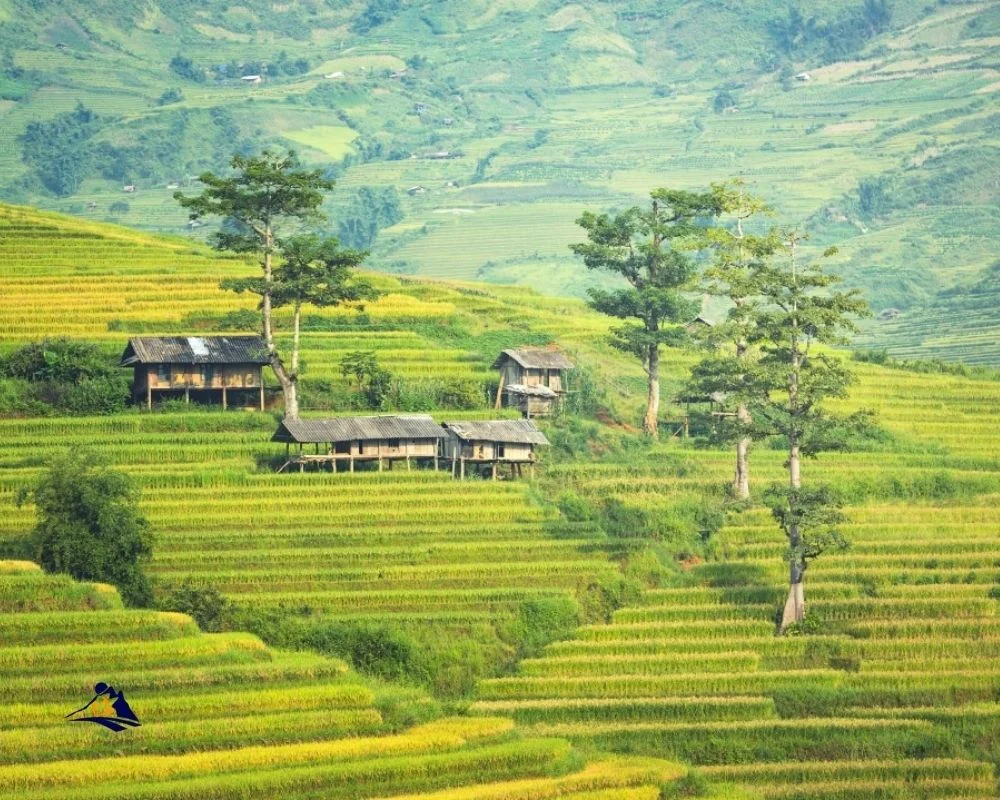
Sapa is a hidden gem in Vietnam’s northern mountains. It covers about 678.6 square kilometers. The area is known for its stunning landscapes and rich culture. Sapa’s high altitude of 1,600 meters makes it cooler, perfect for escaping summer’s heat.
The region is a mix of natural beauty and cultural diversity. It’s home to ethnic groups like the Tày, Giáy, Hmong, and Dao. This Sapa travel guide will show you the top attractions. Highlights include Fansipan Mountain, Vietnam’s highest peak, offering breathtaking views at 3,143 meters.
Visiting Cat Cat and Ta Van villages lets you dive into local culture. These villages are filled with colorful festivals and traditions. Sapa’s landscapes, flora, and calm atmosphere are perfect for photography and exploration.
- Fansipan Mountain: Perfect for trekking enthusiasts.
- Cat Cat Village: Experience traditional Hmong culture.
- Ta Van Village: A scenic stop for stunning terraced rice fields.
- Sapa Glass Bridge: Offers thrilling activities and extraordinary views.
- Silver Waterfall: A magnificent cascade that sparkles in sunlight.
Exploring Sapa reveals many adventures and experiences. Its cool climate and beautiful scenery are ideal for relaxation and outdoor fun. Get ready to be amazed by Sapa’s attractions as we start this journey together.
Understanding the Location of Sapa on the Vietnam Map

Sapa is a charming town in Vietnam’s northwest. It’s known for its stunning landscapes and rich culture. On the map, Sapa is about 300 kilometers from Hanoi, in the Hoang Lien Son mountain range. It’s at an elevation of 1,500 to 1,800 meters, offering breathtaking views of hills and rice fields.
Getting to Sapa from Hanoi is easy. You can drive for 6-7 hours or take a night train to Lao Cai. From Lao Cai, it’s just 38 kilometers to Sapa. This makes Sapa a favorite for those seeking adventure or a peaceful getaway. It’s close to attractions like Ham Rong Mountain and Mount Fansipan.
Choosing where to stay in Sapa is important. Staying in town gives you easy access to main attractions. Options range from budget-friendly Pea Homestay to the luxurious Hôtel de la Coupole – MGallery. Knowing Sapa’s location helps us enjoy its natural beauty and culture fully. Check out more at this link.
Sapa offers amazing scenery and a rich cultural mix. Understanding its geography helps us plan our trips better. This way, every moment in Sapa becomes unforgettable.
| Travel Direction | Distance | Travel Time |
|---|---|---|
| Hanoi to Sapa | 300 km | 6-7 hours by car |
| Lao Cai to Sapa | 38 km | 1 hour by car |
Traveling to Sapa: How to Get There

Getting to Sapa is an exciting part of our journey. It’s about 317 kilometers from Hanoi. We have several transportation options, each offering a unique experience.
For a convenient and popular option, we can take a coach from Hanoi. The journey lasts about 5 hours and costs between VND 210,000 and VND 750,000. This option provides flexibility, allowing us to enjoy the scenery along the way.
If we choose to travel by train, it’s a different experience. Train tickets from Hanoi to Lao Cai City range from VND 450,000 to VND 2,000,000, with the journey lasting roughly 8 to 9 hours. The train offers comfort and stunning views, making it a pleasant way to start our adventure.
For those feeling adventurous, hiring a motorbike is another option. Motorbike rentals cost between VND 120,000 and VND 200,000 per day, allowing us the freedom to explore Sapa and its surroundings at our own pace. Alternatively, private car hires start from VND 600,000 per day, costing a bit more but providing comfort and direct access into Sapa.
Once in Sapa, we can rely on local transportation options such as hired motorbikes, motorcycle taxis, or trekking to explore the area. Trekking can be a rewarding way to experience Sapa’s natural beauty, saving us on parking expenses but requiring a good level of fitness and proper gear.
When planning our trip, we should consider the best time to visit Sapa Vietnam. March to May and September to November are ideal due to pleasant weather and scenic views. We should avoid June to August because of heavy rains and December to February due to colder temperatures. With these travel tips and transportation options, we can ensure a smooth and enjoyable journey to Sapa.
Sapa 1 Day Tours
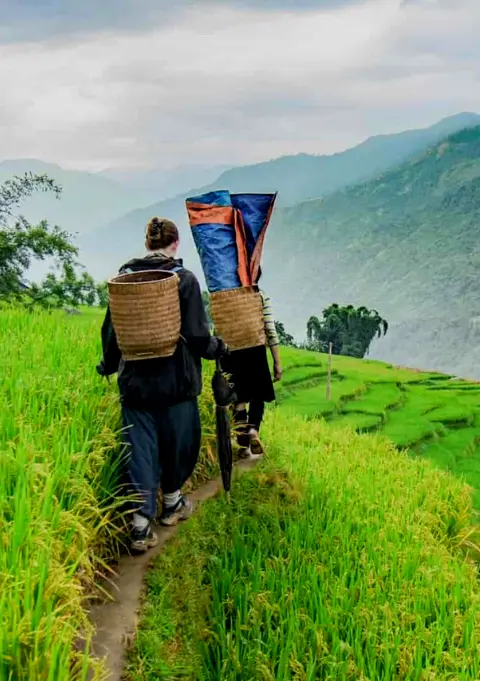
- 1 day experience
- Moderate to challenging
- Cultural immersion & active adventure
- Rice fields, valleys & villages
- Private tours
- Vegan-friendly
Sapa 2 Day Tours
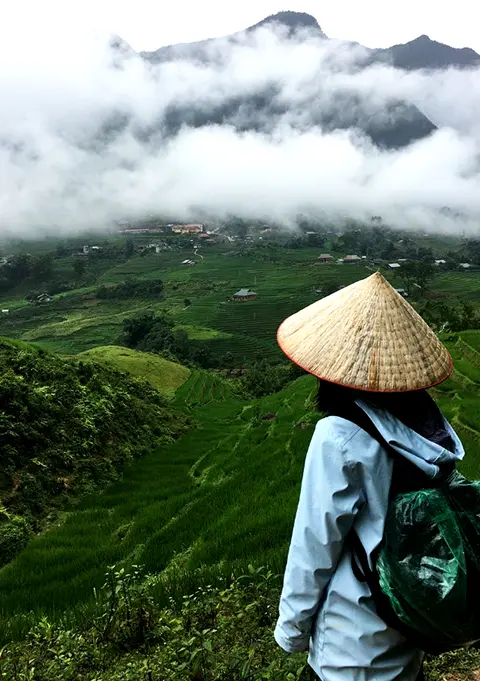
- 2 days 1 night experience
- Moderate to challenging
- Cultural immersion & active adventure
- Mountains, valleys, rice fields and villages
- Private tours
- Vegan-friendly
Sapa 3 Day Tours
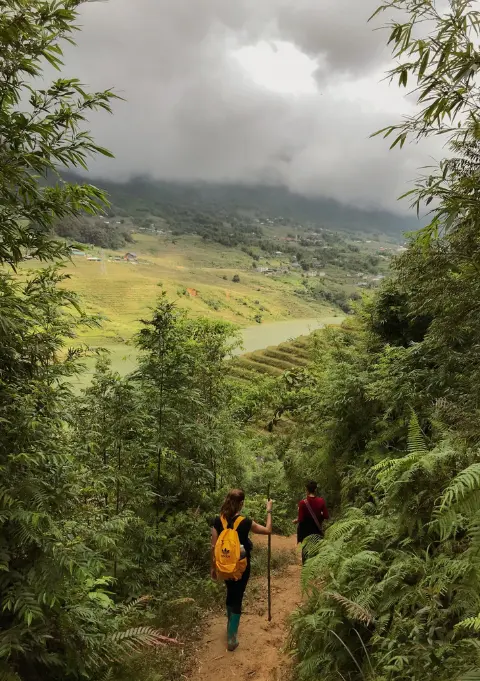
- 3 days 2 night experience
- Moderate to challenging
- Cultural immersion & active adventure
- Mountains, valley, rice fields & villages
- Private tours
- Vegan-friendly
Sapa 4 Day Tours
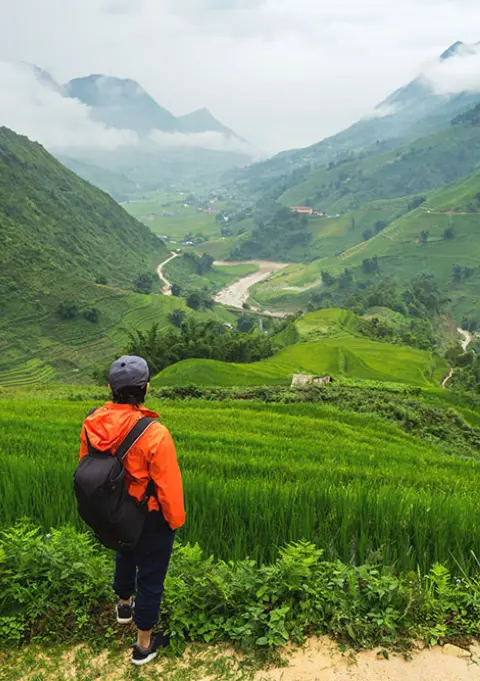
- 4 days 3 night experience
- Moderate to challenging
- Cultural immersion & active adventure
- Mountains, valleys, rice fields & villages
- Private tours – Less Touristic
- Vegan-friendly
| Transportation Mode | Time | Cost (VND) |
|---|---|---|
| Coach from Hanoi to Sapa | Approx. 5 hours | 210,000 – 750,000 |
| Train from Hanoi to Lao Cai | Roughly 8-9 hours | 450,000 – 2,000,000 |
| Motorbike Hire (per day) | Flexible | 120,000 – 200,000 |
| Private Car Hire (per day) | 4-5 hours | Starting from 600,000 |
Essential Features of the Map Sapa Vietnam
The Sapa tourist map is a key tool for exploring this stunning area. It offers lots of info on local sights, hiking paths, and important services. With the map, navigating Sapa’s winding roads becomes easy, leading us to hidden spots many miss.
Some key features of the Sapa map include:
- Landmarks: Major attractions like Mount Fansipan and the Silver Waterfall are marked, making it easy to find our way.
- Trekking Routes: The map shows trails for all skill levels, helping us pick the perfect hike.
- Transportation Hubs: It lists bus and train stations, helping us plan our travel.
- Local Amenities: It helps us find places to eat, shop, and stay, improving our Sapa trip.
The Sapa tourist map lets us see famous spots and explore quieter areas too. It makes every trip an adventure, helping us enjoy Sapa’s beautiful landscapes fully.

Exploring Sapa’s Culture and Ethnic Diversity
Sapa Vietnam culture is vibrant and rich. It’s shaped by many ethnic minority groups living here. With six major ethnic communities, like the Hmong and Tay, Sapa is a colorful mix of traditions and customs.
Visiting Sapa, we can dive into the lives of the Hmong and Tay. We can join local festivals and events. Staying in a homestay lets us connect with families and see their daily life up close.
The Bac Ha market is a must-see. It’s where we find diverse ethnic attire and handicrafts. Every Sunday, it’s a bustling place filled with fresh produce and handmade goods. Walking through, we’re surrounded by vibrant sights and smells.
Sapa’s natural beauty meets its cultural heritage. Places like Muong Hoa and Nam Cang offer stunning views and chances to meet local tribes. Hiking here, we see ancient rock carvings and learn about their history.
“Sapa is not just a destination; it’s a journey through cultural diversity and stunning landscapes.”
In Sapa, our journey is about more than just the views. It’s about understanding the unique cultures of the ethnic communities. We invite visitors to dive into this cultural richness for unforgettable experiences.
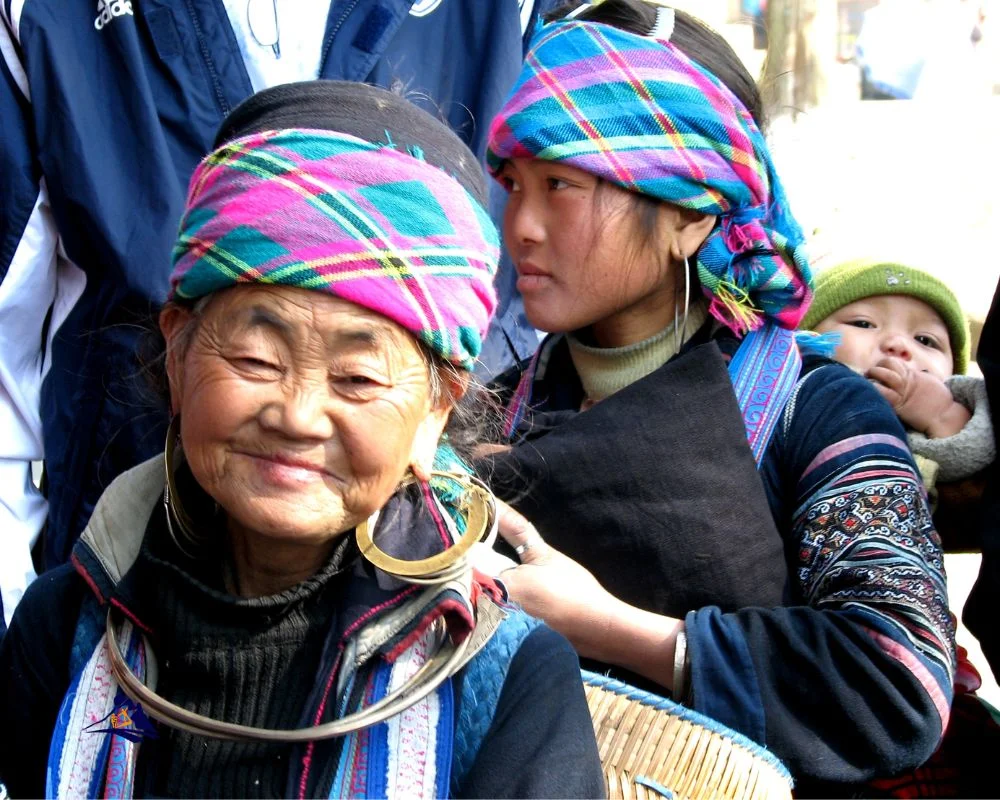
| Ethnic Group | Key Characteristics | Traditional Crafts |
|---|---|---|
| Hmong | Known for their colorful clothing and rich traditions | Embroidery and weaving |
| Dao | Recognized by their distinctive red clothing | Traditional medicine and herbal remedies |
| Tay | Strong agricultural practices and rice cultivation | Bamboo crafting and basket weaving |
| Giay | Known for their festive celebrations and dances | Traditional drum making |
In Sapa, we can enjoy local dishes like Thang Co and bamboo sticky rice. The stunning landscape and rich culture make our visit unique and enriching.
Sapa Tourist Map: Must-Visit Attractions
Exploring Sapa reveals a treasure trove of attractions. The tourist map is key, leading us to spots that mix culture with nature.
Fansipan Mountain stands out as Vietnam’s highest peak. It’s a favorite for those who love adventure. Hiking or taking a cable car offers stunning views.
Cat Cat Village is a gem, just three kilometers from Sapa town. For 70,000 VND, we see the H’Mong people’s traditional life. A 2-3 hour tour lets us see the waterfall and museum.
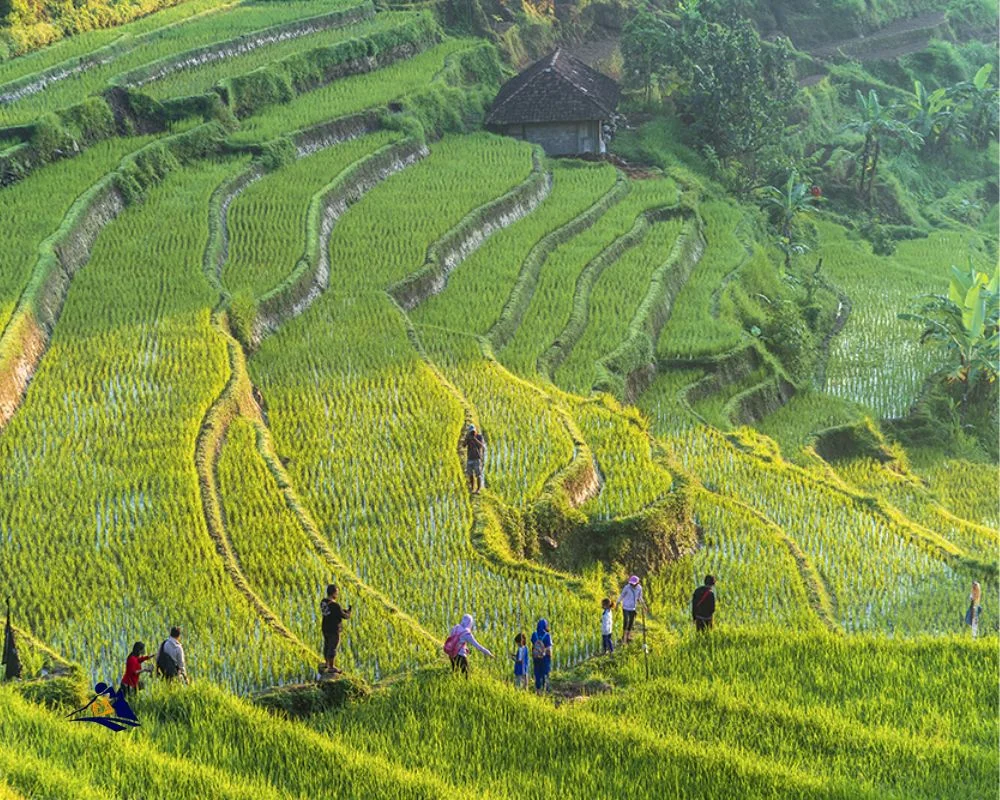
Muong Hoa Valley is home to ancient carvings and rice fields. It’s a peaceful place with deep cultural value. It’s a top spot for those interested in Sapa’s culture.
Ham Rong Mountain is another highlight. Its gardens and views are stunning. Getting there is worth it for the natural beauty.
For a true cultural dive, visit ethnic minority villages like Ta Van and Sin Chai. Sin Chai costs 40,000 VND per adult. Ta Van offers rich cultural experiences.
Maps from hotels and tourist centers help us navigate Sapa. We can trek, rent a bike, or take a bus. Sapa’s waterfalls and ancient sites are waiting for us. It’s a place for all kinds of explorers.
Sapa Trekking Trails and Scenic Hiking Routes
Sapa is famous for its stunning landscapes, making it a top spot for scenic hikes. It offers many Sapa trekking trails for all skill levels. Whether you’re up for an easy walk or a tough trek, there’s something for everyone.
The Lao Chai – Ta Van – Y Linh Ho trail is a favorite, covering about 8 km. It lets us see terraced rice fields and meet local ethnic groups like the H’mong and Dao. For a shorter trip, the Ma Tra – Ta Phin route is just 4 km, great for a half-day outing.
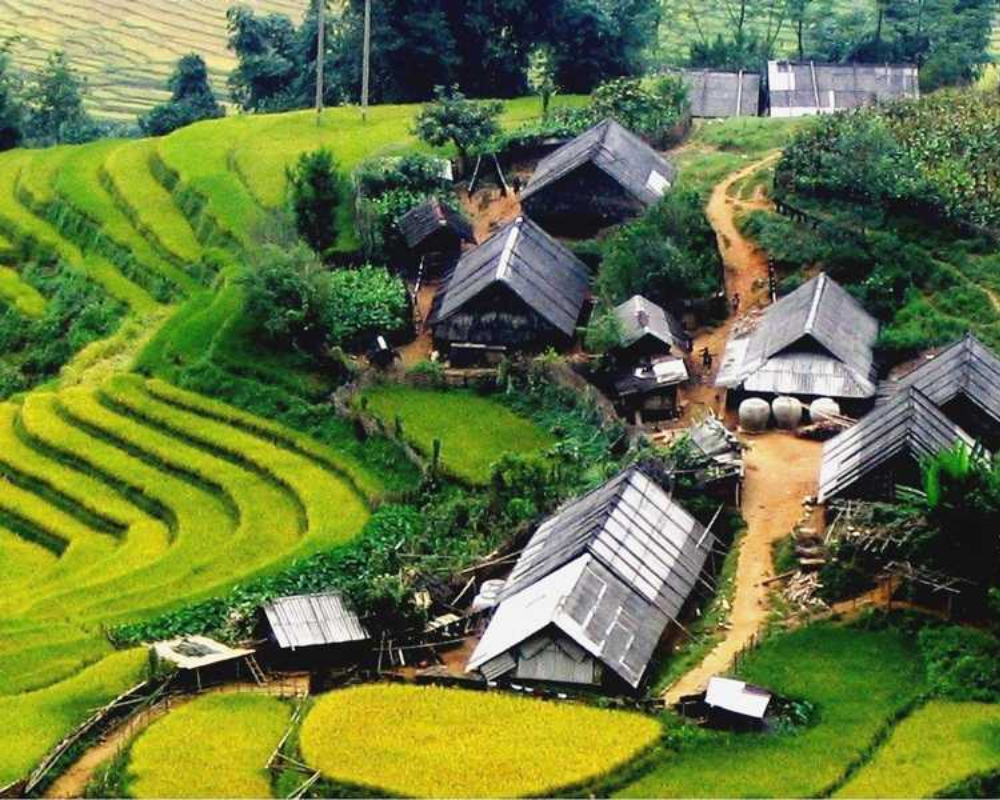
The Sa Seng – Hang Da – Giang Ta Chai trail is longer, at 15 km, and perfect for experienced hikers. Hiring a local guide, costing about USD40 per person, is recommended. It helps us learn more about the area’s culture and history while trekking.
The best time for trekking in Sapa is from August to April. The dry season, from October to April, is the best for hiking. We’ll see amazing sights, like the Mount Fansipan, which stands at 3,143 meters.
For shorter routes, aim to finish in three hours. Longer ones can be done over two days for a more relaxed pace. Always be careful, especially when motorbikes pass by.
Using a Sapa trekking map can help plan our trip better. It ensures we see all the natural wonders Sapa has to offer. Let’s explore Sapa’s beauty, step by step!
Best Time to Visit Sapa Vietnam
Planning our trip to Sapa Vietnam made us think about the climate and seasons. The best times are March to May and September to November. These months offer mild weather, beautiful landscapes, and great hiking.
In spring, especially April and May, the fields are green with rice. The weather is perfect for outdoor fun. Temperatures are between 15°C and 28°C, with occasional showers that make the scenery even more stunning.

Summer, from June to August, brings heavy rain and high temperatures. It’s hard to enjoy the outdoors with temperatures between 23°C and 32°C. This season is busy with local tourists but might not be what we’re looking for.
Autumn, from September to November, is amazing with golden rice terraces. The weather is dry and cool, ideal for trekking and photos. Temperatures are between 18°C and 28°C, making it perfect for exploring.
Winter, from December to February, is cold with temperatures sometimes as low as 5°C. The mist and snow make it a winter wonderland. It’s the low season, offering a peaceful experience for those who brave the cold.
| Season | Months | Average Temperature (°C) | Highlights |
|---|---|---|---|
| Spring | March to May | 15 to 28 | Beautiful flower blossoms, clear skies, great trekking conditions |
| Summer | June to August | 23 to 32 | Heavy rain, peak domestic tourism |
| Autumn | September to November | 18 to 28 | Golden rice fields, ideal trekking and photography |
| Winter | December to February | 5 to 15 | Cold, misty landscapes, low season for tourism |
By choosing the best time to visit Sapa Vietnam, we can enjoy the changing seasons. This ensures unforgettable experiences on our journey.
Discovering Sapa Vietnam Weather: A Year-Round Guide

Knowing the weather in Sapa, Vietnam, is key to planning our trip. Sapa is famous for its beautiful hills and rice terraces. It has a humid subtropical climate that stays cool all year. The weather changes a lot with the seasons, affecting what we can do outside.
The dry season, from October to April, brings sunny and mild weather. The wet season, from May to September, is rainy and foggy. Here’s a month-by-month guide to help us get ready:
| Month | Average Temperature (°C) | Sunshine Hours | Monthly Rain (mm) | Rainy Days |
|---|---|---|---|---|
| January | 10 | 113 | 105 | 15 |
| February | 11 | 111 | 105 | 13 |
| March | 15 | 157 | 153 | 11 |
| April | 18 | 170 | 188 | 13 |
| May | 20 | 150 | 253 | 16 |
| June | 21 | 95 | 335 | 20 |
| July | 22 | 113 | 359 | 23 |
| August | 22 | 119 | 347 | 24 |
| September | 20 | 101 | 215 | 18 |
| October | 18 | 95 | 133 | 13 |
| November | 17 | 98 | 80 | 10 |
The best times to visit Sapa are from March to May or September to November. The weather is nice, and the rice terraces are at their best. We should spend at least 3-5 days to fully enjoy Sapa’s beauty and culture.
By knowing the weather, we can explore Sapa’s stunning landscapes. We can plan our outdoor activities, like trekking and visiting unique spots.
Sapa 1 Day Tours

- 1 day experience
- Moderate to challenging
- Cultural immersion & active adventure
- Rice fields, valleys & villages
- Private tours
- Vegan-friendly
Sapa 2 Day Tours

- 2 days 1 night experience
- Moderate to challenging
- Cultural immersion & active adventure
- Mountains, valleys, rice fields and villages
- Private tours
- Vegan-friendly
Sapa 3 Day Tours

- 3 days 2 night experience
- Moderate to challenging
- Cultural immersion & active adventure
- Mountains, valley, rice fields & villages
- Private tours
- Vegan-friendly
Sapa 4 Day Tours

- 4 days 3 night experience
- Moderate to challenging
- Cultural immersion & active adventure
- Mountains, valleys, rice fields & villages
- Private tours – Less Touristic
- Vegan-friendly
Sapa Vietnam Accommodation: Where to Stay
Sapa has many places to stay, from budget-friendly hostels to luxury resorts. Knowing where to stay in Sapa makes our trip better, matching our preferences.
For a local feel, try traditional homestays. They let us experience the area’s culture and enjoy home-cooked meals. Resorts like The View Sapa Hotel offer modern comforts and amazing views, ideal for unwinding after a day out.
Here’s a brief overview of the accommodation options:
| Accommodation Type | Features | Average Price (per night) |
|---|---|---|
| Luxury Hotels | Stunning views, full amenities, spa services | $93 |
| Mid-Range Hotels | Comfortable rooms, city center access | $34 |
| Budget Hostels | Shared rooms, social atmosphere | From $34 |
| Homestays | Local cultural immersion, home-cooked meals | $40 |
When looking for a place to stay in Sapa, think about where you want to be. Sapa town center is great for easy access to sights. Quieter spots are perfect for peace. Always book early, especially when it’s busy, to get the best spot.
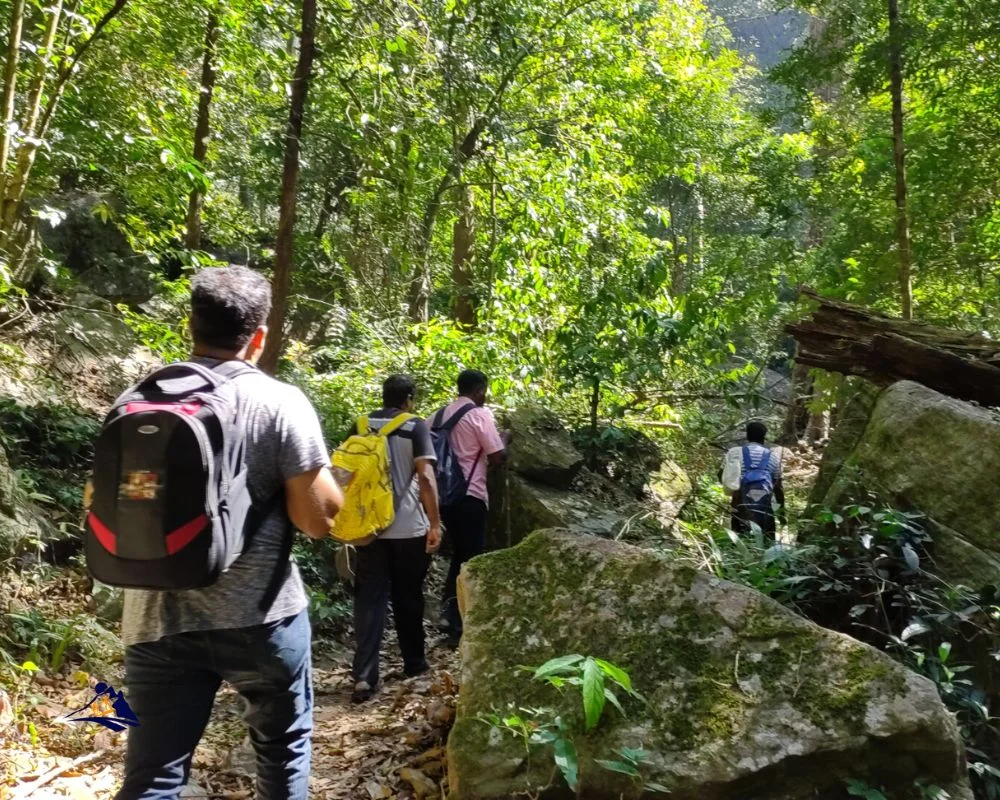
Remember to pack the right things like warm clothes and trekking shoes. Sapa’s beauty is in its stunning views and friendly people, making our stay unforgettable.
Sapa Vietnam Attractions: Highlighting Unique Sites
Sapa is a treasure trove of unique sites that truly showcase its stunning landscape and rich culture. Each year, we find ourselves drawn to the natural beauty and vibrant life of the area. Among the notable attractions, Silver Waterfall stands out as a breathtaking sight. This waterfall cascades down rocky cliffs, creating a mesmerizing view that captures the heart of everyone who visits.
We often enjoy the cooling mist on warm days while taking in the surrounding lush greenery.
Another highlight in our exploration of Sapa Vietnam attractions is the famous Sapa market. This bustling hub brings together various hill tribes, offering a glimpse into local culture through handicrafts, textiles, and traditional foods. Here, we interact with artisans and indulge in the colorful local atmosphere, making it a must-visit for anyone looking to connect with the essence of the region.
For those of us looking for more adventure, the Tram Ton Pass is an exhilarating experience. At 1,900 meters, it is the highest road in Vietnam and offers panoramic views of the surrounding mountains. As we traverse this winding road, the breathtaking landscapes leave us speechless.
The elevation also allows us to witness Mount Fansipan, the highest peak in Indochina, standing majestically at 3,143 meters.
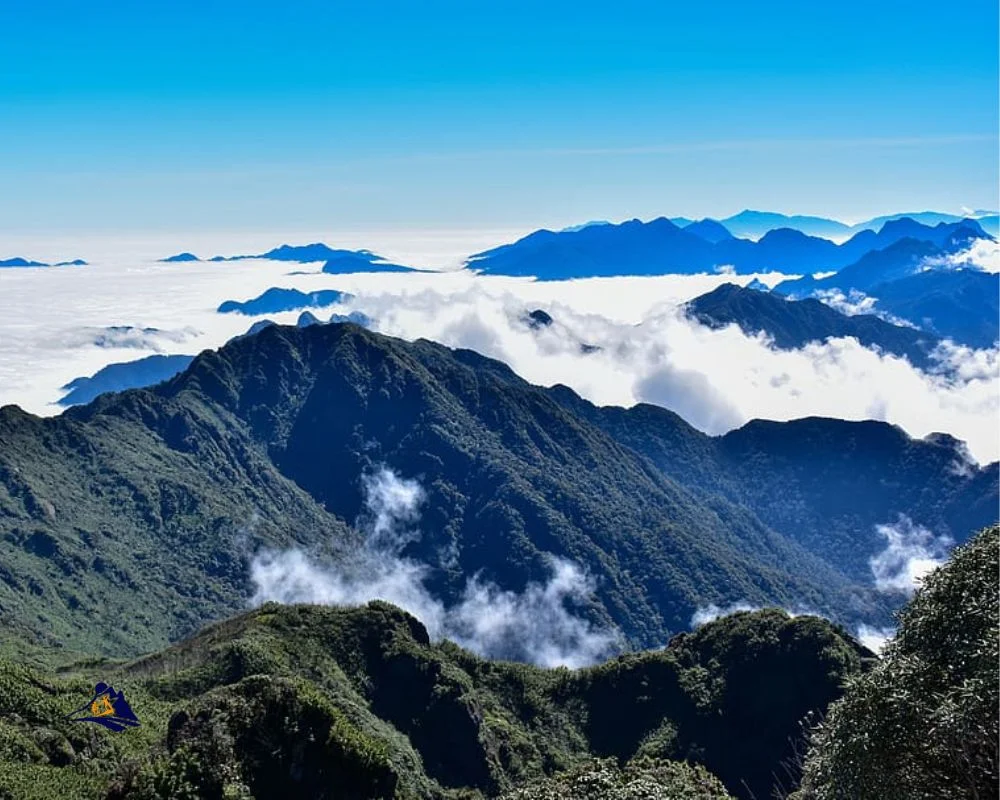
With all these incredible sights, we discover Sapa as not just a travel destination, but a vibrant cultural experience waiting to be explored. Exploring these unique sites in Sapa is a journey that promises lasting memories for all of us.
Sapa Hiking Routes: Exploring the Great Outdoors
Sapa is known for its stunning landscapes and amazing Sapa hiking routes. These routes let us dive into nature. Whether you’re new to hiking or have done it before, Sapa has something for everyone.
Our recent hikes in Sapa showed us its beauty. We trekked to Muong Hoa Valley, a five-hour journey with breathtaking views. We met locals until we reached Lao Chai village, enjoying peace without tourists.
Our trek to Sin Chai was filled with cultural moments. We saw Hmong women sewing in their colorful clothes. This made our outdoor adventure in Sapa even more special.
Here are some key points for those thinking about hiking in Sapa:
| Trek | Duration | Cost Estimates | Highlights |
|---|---|---|---|
| Muong Hoa Valley | 5 hours | 80,000 VND (motorbike lift back) | Scenic vistas, local interactions |
| Sin Chai | Approx. 90 minutes to sign | 50,000 VND (motorbike ride from Cat Cat Village) | Traditional culture |
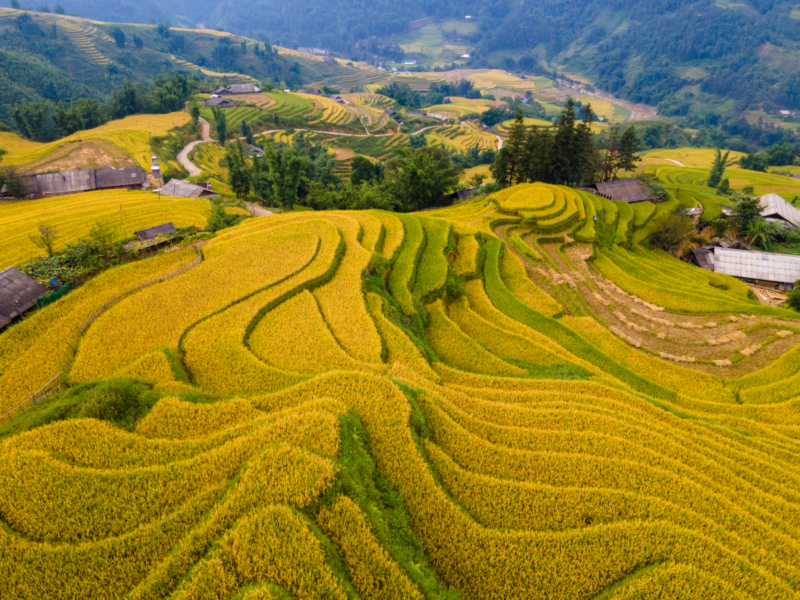
Trekking in Sapa can be different for each route. Guided tours cost about $25 per person for two days. For groups of up to six, it’s a great way to explore with a guide. We suggest trying solo hiking for a day to really enjoy the scenery.
Exploring Sapa outdoors is more than just travel. It’s about connecting with local culture. By picking the right trails, we make unforgettable memories in this unique place.
Local Cuisine: What to Eat in Sapa
Exploring Sapa’s local cuisine gives us a peek into the area’s rich culture. We find many traditional dishes that show off the town’s unique tastes. With many restaurants and street vendors, we can enjoy authentic Sapa food that excites our taste buds.
One dish you must try is the Salmon and Sturgeon Hotpot. It’s a favorite here, priced from $9 to $65. It mixes fish bones, fresh veggies, and mushrooms for a filling meal. For a bold taste, try Thang Co, a traditional Hmong dish with assorted meats, priced from $2 to $42.34. It’s a great way to experience Sapa’s communal dining.
For a quick snack, Com Lam, sticky rice in bamboo tubes, is perfect at $1.5 to $4.66. You can also try Dried Buffalo Meat (Thit Trau Gac Bep), known for its rich taste, starting at $26 per kilogram. Sapa also offers Mam Da, a dish from rocky mountains, priced between $4.23 to $13.97.
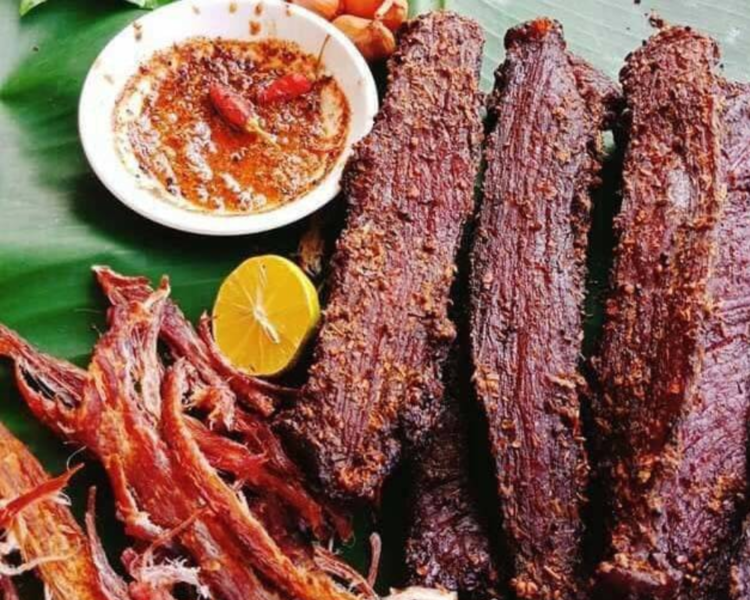
Don’t miss Con Sui, dry noodles at Ong Ha Restaurant, for $1 to $2.5. Another favorite is Ga Den, or Black Chicken, at A Phu Restaurant for as low as $2. The grilled food scene is lively, with skewers from $0.5 to $4, depending on the type.
The culinary wonders of Sapa include Men Men, a sweet corn meal dish by the Hmong people. For desserts, Chestnut Cake (Banh Hat De) is a hit, made with fried wheat flour and chestnut puree. It’s a great souvenir. Enjoy local drinks like Tao Meo Wine, made from Assam apples.
To fully enjoy Sapa’s food, visit the local markets. They show off fresh ingredients used in these tasty dishes. Each meal tells a story of Sapa’s heritage and natural abundance. For more on Sapa’s highlights, check out this link.
| Dish | Description | Price Range (USD) |
|---|---|---|
| Salmon and Sturgeon Hotpot | A hearty hotpot with fish and fresh vegetables | $9 – $65 |
| Thang Co | Traditional Hmong dish with mixed meats | $2 – $42.34 |
| Com Lam | Sticky rice cooked in bamboo tubes | $1.5 – $4.66 |
| Dried Buffalo Meat | Unique flavor, rich in history, great as a snack | From $26/kg |
| Mam Da | Harvested dish from high mountains | $4.23 – $13.97 |
| Con Sui | Dry noodles with a variety of toppings | $1 – $2.5 |
| Ga Den | Black chicken cooked with traditional herbs | From $2 |
| Grilled Foods | Various skewers from seafood to meats | $0.5 – $4 |
Join us in exploring Sapa’s delightful local cuisine. Each bite takes us on a journey through the region’s rich culinary world.
Photography Tips for Capturing Sapa’s Beauty
Sapa is a paradise for photography lovers. Its stunning landscapes and vibrant local cultures offer breathtaking photo opportunities. We can learn various techniques to improve our photography while respecting local customs.
The golden season, from mid-September to early October, is the best time for photography in Sapa. During this time, the terraced fields turn from green to yellow, creating a magical backdrop. Many consider Sapa’s terraced fields among the world’s most beautiful rice fields.

Here are some must-visit locations for photography:
- Muong Hoa Valley
- Cat Cat Village
- Ta Phin Village
- Lao Chai – Ta Van Village
- Sin Chai Village
- Y Linh Ho Village
- Infinity Garden
- Ban Ho Village
Wearing traditional ethnic costumes can add depth to our photos. It also highlights the area’s rich heritage. Remember to respect the locals and their customs while taking photos.
Activities like trekking and homestaying offer unique views of Sapa’s landscapes. The Fansipan Cable Car and O Quy Ho Pass are great for capturing the beauty of rice fields and local culture. For a deeper experience, check out suggested itineraries and tips for visiting.
Before heading out, check the weather and wear the right shoes. Make sure your gear is ready for a successful photography trip in Sapa. By following these tips, we can capture stunning images that showcase Sapa’s beauty and culture.
Connecting with Nature: Outdoor Activities in Sapa
Sapa is a place of breathtaking beauty, with landscapes and culture that invite us to explore. It offers a variety of outdoor activities that celebrate nature. From lush rice terraces to towering mountains, there’s something for every adventurer.
One of the highlights is Fansipan Mountain, standing over 3,140 meters tall. We can trek the challenging paths or take a scenic cable car ride. The views from the top are unforgettable.
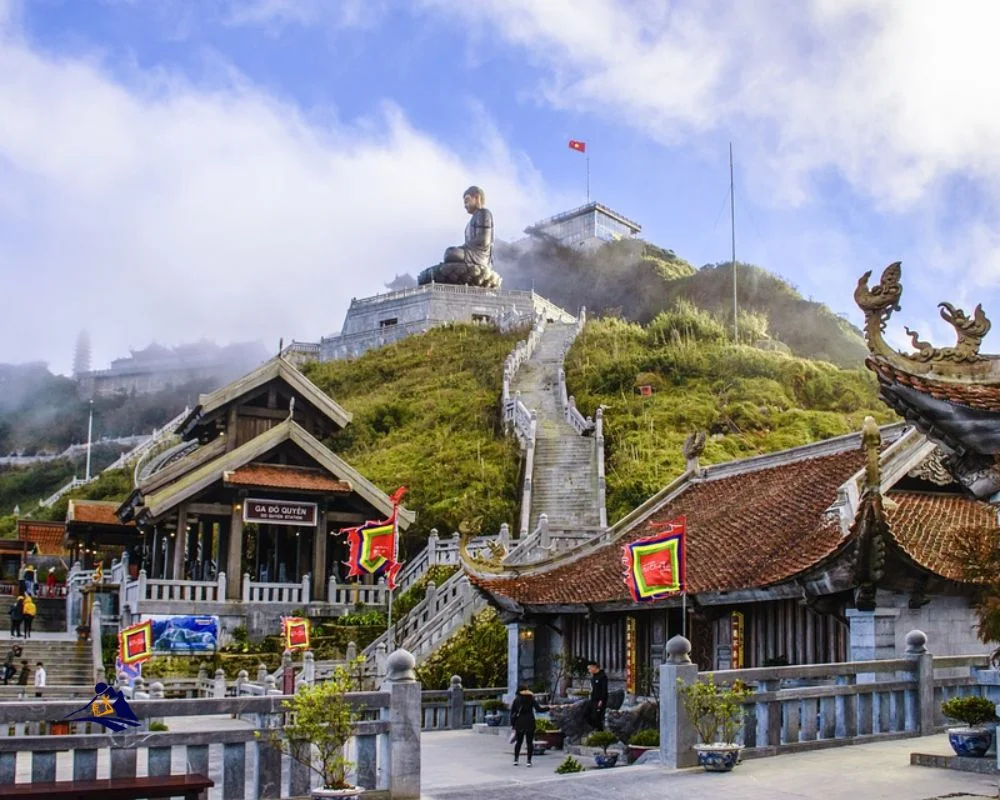
Visiting Cat Cat Village is a must for those interested in local culture. This charming village showcases Hmong traditions. It also offers a chance to buy authentic handicrafts directly from artisans, supporting local communities.
- Drive to scenic locations on a motorbike, exploring off-the-beaten-path villages.
- Take a refreshing hike to Silver Waterfall, cascading from over 200 meters, or enjoy the serene Love Waterfall.
- Engage in homestays to experience life with local families, contributing to sustainable tourism.
Sapa Lake is perfect for relaxing picnics or a leisurely stroll. The tranquil environment lets us unwind and enjoy the natural beauty around us.
Planning our days in Sapa, we find 2-3 days ideal for hiking, exploring villages, and discovering unique offerings. Whether trekking through terraced fields or enjoying local cuisine, nature in Sapa enriches our experience. It reminds us of the extraordinary connections we can make with this stunning landscape.
Conclusion
Sapa is a standout destination in Vietnam’s northwestern mountains. It sits at an average height of 1,500 meters. This place combines stunning nature with rich culture, making it unique.
Exploring Sapa, we see landmarks like lush rice fields and Mount Fansipan. Each spot has its own story, captivating every visitor.
Planning a trip to Sapa? The drive from Hanoi takes about 5 to 6 hours. The scenic Noi Bai – Lao Cai Expressway makes the journey beautiful. Sapa offers many places to stay and delicious local food.
There are also many ways to get there, like buses and trains. This makes planning your trip easier.
Sapa offers exciting outdoor activities and cultural experiences. As we explore, we see its beauty and meet its people. Sapa is more than a place on a map; it’s a treasure full of adventures.
We hope our guide inspires you to experience Sapa’s beauty and adventure. Let’s explore this enchanting town together!
Sapa 1 Day Tours

- 1 day experience
- Moderate to challenging
- Cultural immersion & active adventure
- Rice fields, valleys & villages
- Private tours
- Vegan-friendly
Sapa 2 Day Tours

- 2 days 1 night experience
- Moderate to challenging
- Cultural immersion & active adventure
- Mountains, valleys, rice fields and villages
- Private tours
- Vegan-friendly
Sapa 3 Day Tours

- 3 days 2 night experience
- Moderate to challenging
- Cultural immersion & active adventure
- Mountains, valley, rice fields & villages
- Private tours
- Vegan-friendly
Sapa 4 Day Tours

- 4 days 3 night experience
- Moderate to challenging
- Cultural immersion & active adventure
- Mountains, valleys, rice fields & villages
- Private tours – Less Touristic
- Vegan-friendly


